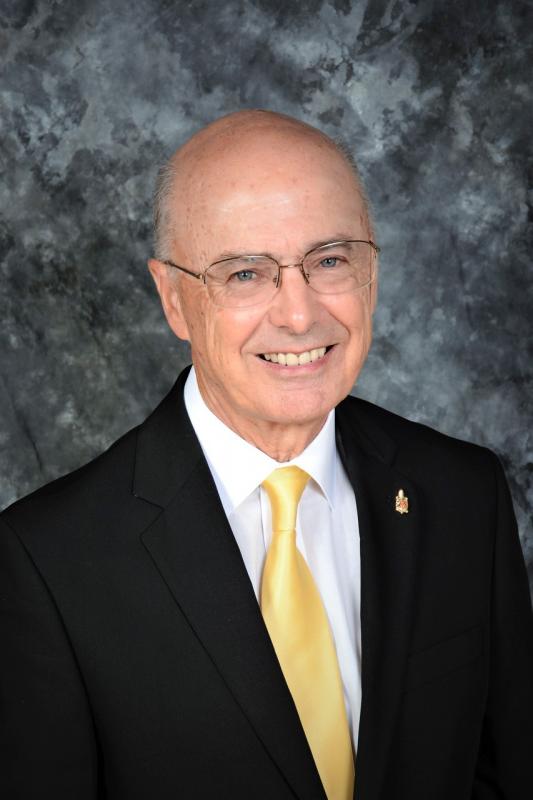Bruce Dale, Ph.D.

Education is something you never lose.
Alumnus Bruce Dale (B.S. ‘64, M.S. ‘67) didn’t plan on being an engineer. In fact, he wanted to be a major league baseball player. A self-professed ‘jock and car guy,’ the Silver Spring, Md. native spent his high school years playing ball and not giving much thought of the future, until his dad asked him at 16 what he wanted to do after high school. “It never occurred to me I’d have to move from home,” Dale said with a laugh. At that point, the majors were off his radar, so he thought he would get a job working at the local gas station, Pete’s Gas Station. He liked cars, and that seemed like a good fit. But his brother Dick, a mathematics major at UMD, nudged him further. If you like cars, he asked, why not go to Maryland and become a mechanical engineer?
While not an exceptional student in high school, Dale succeeded at Maryland. Overwhelmed at first, “I listened to my Dad, who had expectations for me well beyond what I ever had,” explained Dale, who buckled down, worked hard, and started getting straight As in all of his engineering classes. “I was really hooked! I started thinking ‘Maybe I could do this thing,’ and I had really good professors at Maryland.”
Upon graduating from Maryland, Dale landed a job with Bell Labs, who not only took just the top 2% of students, but offered employees the chance to obtain their master’s degree for free while working for the company. Working in Bell’s Baltimore offices, Dale returned to UMD to complete his Master’s degree under Professor Bruce Berger.
From there, Dale became part of a charter program Bell offered at Purdue that allowed him to get his Ph.D. “When I got the Ph.D. offer from Bell, I wasn’t looking for more formal education since I liked working, making valuable things. I like to improve things. But I knew the offer was too valuable to pass up”. He moved to Lafayette, Indiana with his wife, Mickey, and their small son in 1967. “Bell paid for everything! Housing, stipend. Again, I didn’t really want for anything,” said Dale, who received his Ph.D. in 1970.
When major transitions began happening at Bell in the late sixties and early seventies, Dale found himself at a crossroads. “ There were some serious problems at Bell, and they didn’t have much to do with mechanical engineering,” he said. “I had a choice, but because I felt so loyal to them and grateful for the opportunities they gave me, I jumped into software systems, and found myself in the middle of software development.” According to Dale, his friends thought he was ‘nuts’ for getting into software development. “In those days, men built circuits, machines, and wrote erudite technical papers. Women wrote software,” reflected Dale. “But, software systems was where the solutions were, and it became the future. Not what they were doing.”
Eventually, Dale would go on to pioneer satellite technology development through his work on the Iridium Satellite System, an integrated, global network of satellites working in conjunction with ground systems that could transmit signals across every square foot of the globe. “It was audacious, it was bold. It was the type of project you dream about,” said Dale.
While the network was robust, the company misjudged the market place, ultimately leading them to bankruptcy. It was during this tumultuous time that Dale’s wife Mickey was diagnosed with cancer. He dropped everything to care for her. Within nine months she was gone.
Despite being on the brink of retirement, in the aftermath of Mickey’s loss, Dale received an opportunity to write his own ticket with Bell once again, and took a position in England to support their international third generation wireless development. It was at a suggestion from Bell colleagues that he decided to set up a foundation in his wife’s name to honor her legacy, and to give back in the many ways they had been helped over the years.
In 2007, he established the Mickey Dale Family Foundation Scholarship in Engineering to provide a helping hand to engineering students who otherwise might not be able to a ord the chance for an education. Five students have realized their education through support from this fund.
Dale met Mickey while they were both in high school, she was a year behind him and they later married during his senior year at Maryland and she was working at the University of Maryland University College. Both having Maryland ties made supporting scholarships at the university important to both Dale and his wife.
“Education is something you never lose,” said Dale. “Use the money purposefully, and they’ll go on to do good things.”
Top